WHAT'S GOING ON
13 Things Companies Know About You
May 29th, 2013
1. Whether or not you’re pregnant.
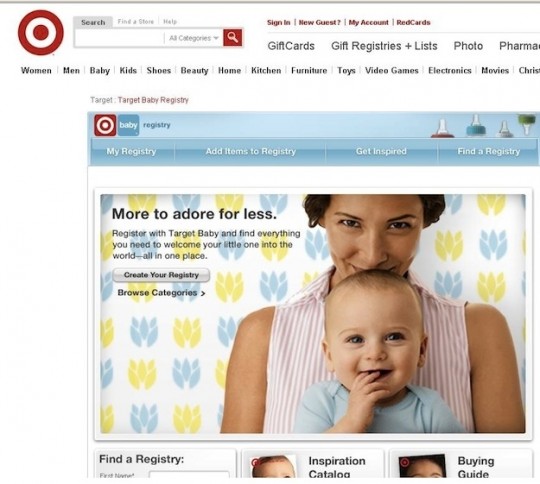
Target keeps track of every customer’s purchases, credit card number, name, email address, and other personal details you enter during a transaction. Its analytics department then tracks “pregnancy indicator” purchases (i.e., unscented lotion, vitamins, etc.), flags potentially pregnant customers, and sends them ads and coupons for pregnancy-related products.
Legend holds that an angry Minneapolis father accused Target of encouraging his teenage daughter to get pregnant after sending her coupons for baby clothing and cribs. He allegedly apologized after discovering that she was indeed pregnant.
Source: b4tea.com
2. How likely you are to miss your flight.

It turns out that ordering a vegetarian meal is the best predictor of arriving on time to the airport. Vegetarians aren’t simply more punctual; the pattern-recognition startup Kaggle suggests that knowing a special meal is waiting for you may make you more invested in showing up.
Source: theunworldlytravelers.com
3. Whether or not your car is a lemon.

By synthesizing data about used car buyers, post-purchase car breakdowns, and car color, Kaggle can predict how likely used cars are to cause problems.
Want to buy a car that lasts? An orange one is your best bet.
Source: backgroundbandit.com
4. What “personal products” you might like to buy with your Communion wafers.
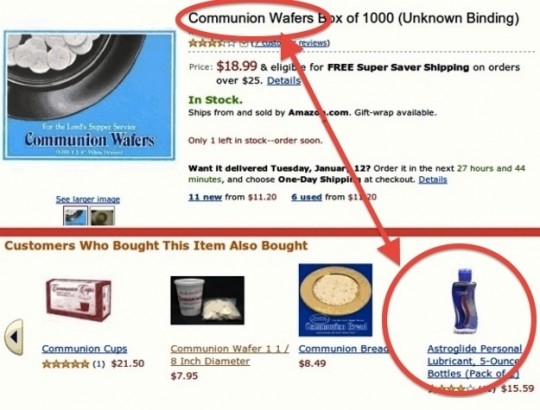
Amazon uses an in-house mining platform to package data about its customers’ browsing and purchase behavior. By segmenting customers by preference profile, Amazon can recommend products tailored to individuals’ purchase and browsing histories. Marketers can also quickly determine where to place relevant ads as you browse.
But sometimes the pairings are a little odd, like lube with Communion wafers.
Source: queerty.com
5. What your meds are actually doing to you.

Statisticians can use digitized medical records to track patterns of disease, drug responses, and even unintended drug benefits across millions of patients. For example, data mining prompted health insurer Kaiser Permanente to explore a connection between statins taken to lower cholesterol and reduced recurrence of prostate cancer.
Data mining also tracks down obscure but dangerous med combinations. An algorithm created at Stanford found that Paxil mixed with Pravastatin raises blood sugar levels.
Source: movieboozer.com
6. Whether or not you’re gay…before you even come out to your family.

As BuzzFeed’s Katie Heaney recently reported, a sponsored story entitled “Coming Out? Need help?” appeared on a user’s Facebook page a day after he texted a friend for advice about coming out to his parents. Although potentially a coincidence, the ad was likely the result of one tiny Facebook activity: The user “liked” a news story about Senator Rob Portman’s support for marriage equality.
Source: katieheaney
7. When someone is about to steal your identity.
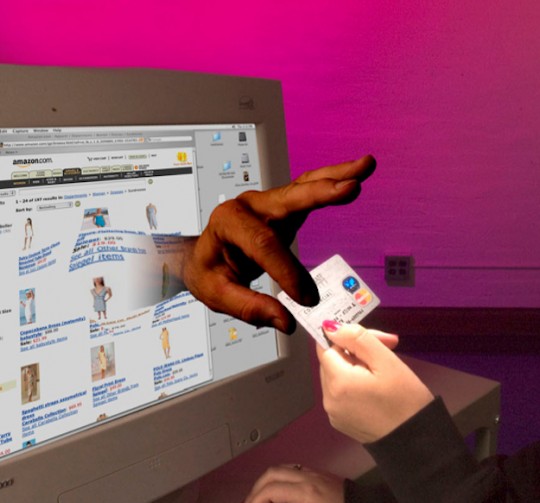
Banks can analyze customer transaction patterns to preempt account takeovers in real time. Their algorithms assign risk scores to different transaction behaviors, like changing PIN numbers, successive transactions, or requests for new cards. When your “risk” score crosses a threshold, your account can be protected to prevent fraud.
Source: blog.fortumo.com
8. When you’re seven weeks away from getting the flu.

Google Flu Trends data can predict localized flu outbreaks seven weeks before they occur. By tracking the frequency of flu-related Google searches across the U.S. (and now in 28 other countries), scientists can almost instantly survey where flu symptoms are increasing.
Since Google data is updated daily, these predictions are faster and more accurate than CDC projections and can even be specific to individual hospitals.
Source: uptownupdate.com
9. When your marriage is going down the tubes.
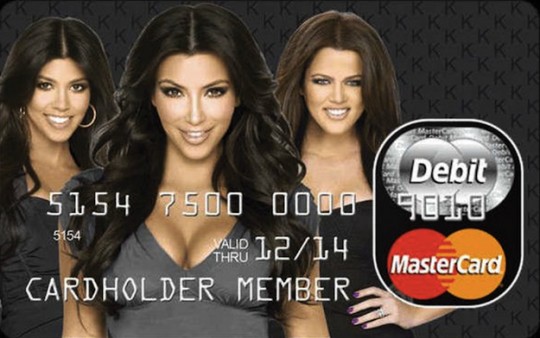
According to Marissa Mayer (though subsequently denied by Visa), credit card companies can predict a divorce two years before it happens with 98% accuracy, based solely on your purchase decisions.
Why do they care? People are more likely to miss bill payments in the tumult of marital drama, so being able to flag you as “high risk” is valuable. If only we were all so clear-sighted about the doom of our relationships! (Unfortunately, their prediction models are proprietary.)
Source: creditcardchaser.com
10. If that gadget you’ve been ogling is about to decrease in value.

The prediction tool at Decide.com trolls tech blogs for industry rumors and collects price information for over 100,000 consumer electronics to predict when your dream gadget is about to drop in price. Watching their price predictions could help you avoid buying something days before it goes on sale.
Source: lifehacker.com
11. How much you’re willing to pay for things.
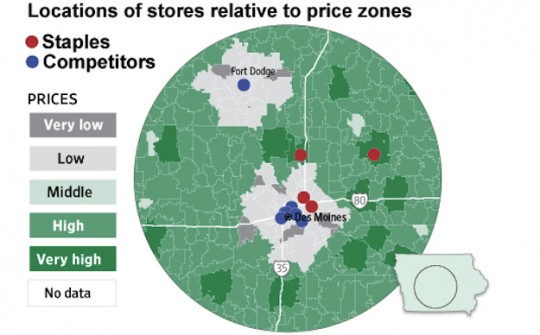
Staples.com will actually change the price of a stapler depending on what geographical location they trace your IP address to. Rosetta Stone Inc., Home Depot, and Amazon also track you down to adjust prices and product offerings based on geolocation technology.
How do you game the ploy? Retail competition is strongest in more affluent neighborhoods and nearby competitors’ brick-and-mortar stores, so your best bet is to shop online near these stores and in wealthier areas.
Source: online.wsj.com
12. Where you’ll probably be in 24 hours, within a 20 meter radius!

A new algorithm uses data about people in your phone book and movement tracking to predict where you’re going, even when it doesn’t fit into your normal routine. Developers think advertisers could use the technique to offer discounts at shops and restaurants where they expect you to be ? it could also let the government more easily track people of interest.
Source: imgur.com
13. That EVERYONE was going to watch House of Cards, now the most-watched series on Netflix.

When developing the project, Netflix relied heavily on their analytics showing the popularity of films involving Kevin Spacey and David Fincher, and how many people were streaming the original British House of Cards. Without knowing it, Netflix users dictated what the show should deliver through their viewing behavior.
Leave a Reply
Back to List
